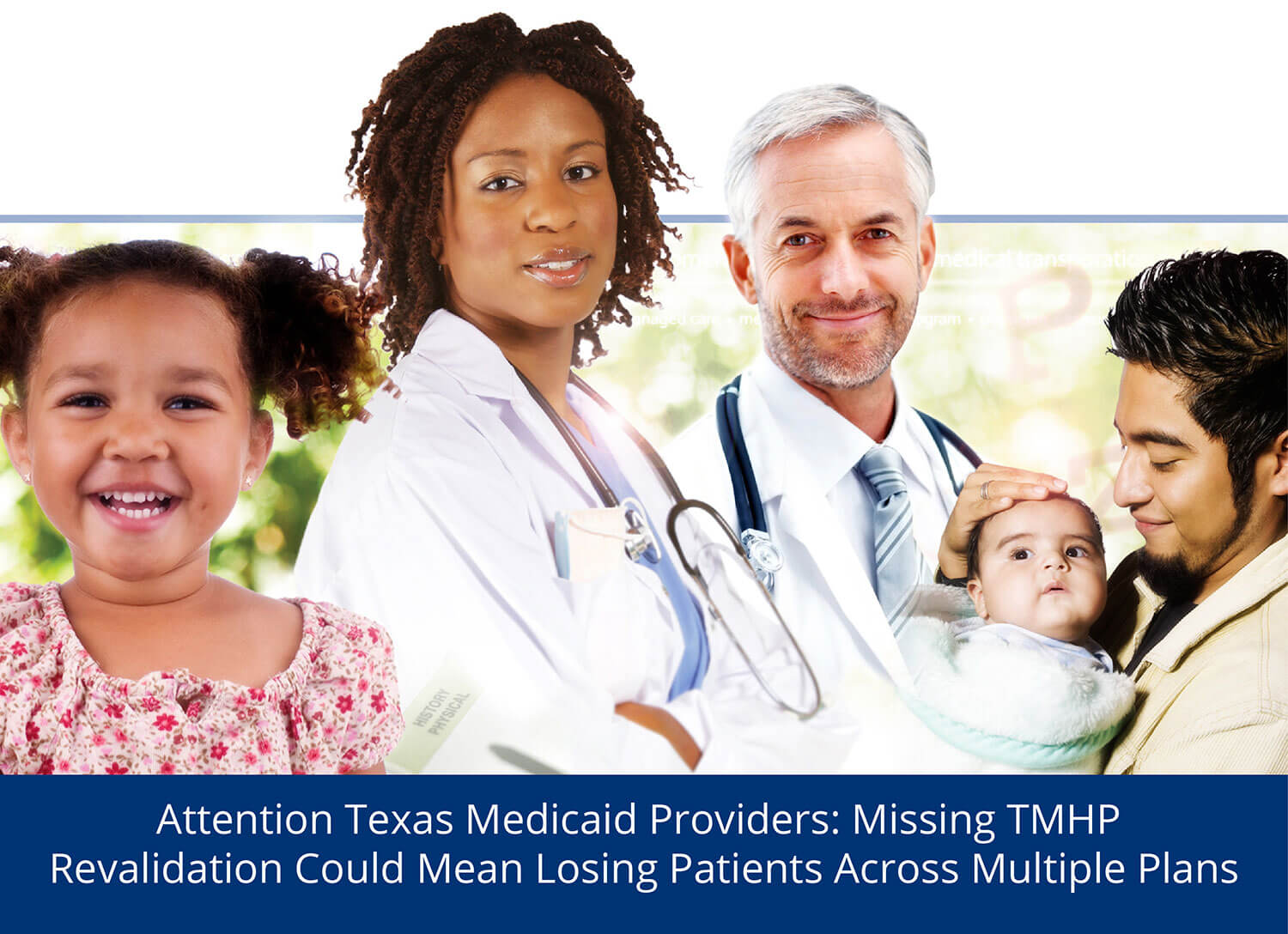Attention Texas Medicaid Providers: Missing TMHP Revalidation Could Mean Losing Patients Across Multiple Plans
Texas Medicaid providers, beware! A recent update from the Texas Medicaid Healthcare Partnership (TMHP) highlights a crucial step many providers might be overlooking. Failing to complete their TMHP revalidation on time could result in not only losing access to TMHP patients, but also to patients covered by three major Managed Care Organizations (MCOs): UnitedHealthcare (UHC), Aetna Medicaid Community Network (MCNA), and DentaQuest.
“Terminating TMHP enrollment would terminate the practice of a provider from all MCOs as well,” explains Capline Healthcare Management in a recent email to their clients. This means that providers who miss their TMHP revalidation deadline could face a significant drop in patients as they would no longer be eligible to treat patients covered by these four major insurance plans.
Traditionally, TMHP enrollment has served as a separate process from MCO enrollment. However, this recent update emphasizes a new wrinkle – TMHP revalidation now acts as an umbrella credential for participation in all four plans.
Luckily, there’s still time to act. TMHP allows providers to initiate their revalidation process up to 120 days before their due date. Providers can find more information and complete the revalidation process online through the Provider Enrollment and Management System (PEMS) on the TMHP website [TMHP enrollment revalidation].
“We urge all our clients, both potential and currently active, to double-check their TMHP revalidation deadlines and prioritize completing the process well before the due date,” says a spokesperson for Capline Healthcare Management. “Missing out on this important step could have a significant impact on your patient base.”
This news serves as a critical reminder for all Texas Medicaid providers to stay informed about program updates and ensure their credentials are up-to-date. By taking proactive steps and completing their TMHP revalidation on time, providers can avoid disruptions and continue serving their patients across all four major Medicaid plans.



